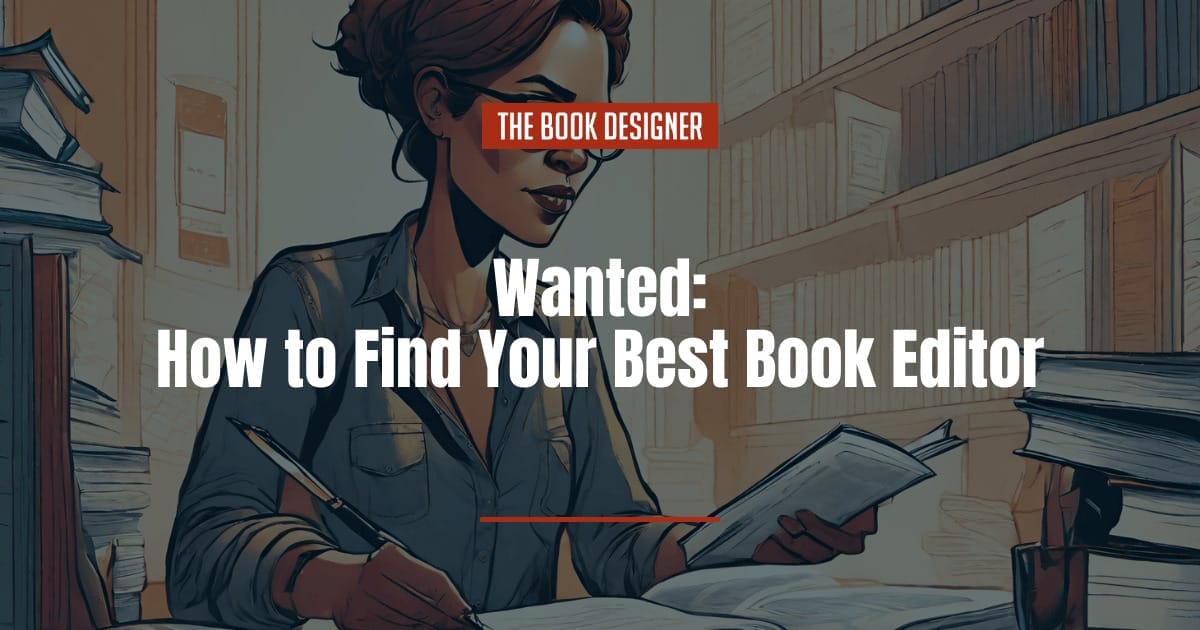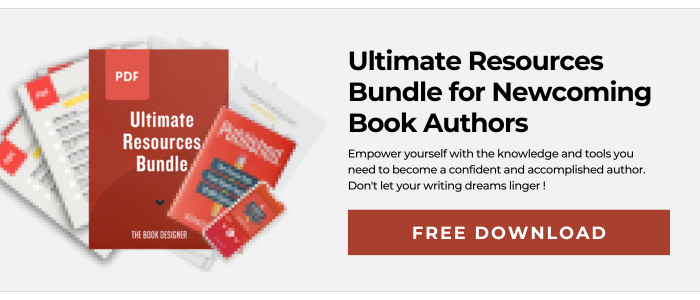Recently, New York Times bestselling author Tim Ferriss (The 4-Hour Work Week) put out a call for a managing editor. Curious, we decided to see what kind of editorial help he was looking for, to determine if there might be lessons for self-pubs everywhere. After all, this is a guy who has figured out a few things about publishing.
So, what did Ferris do? He created a questionnaire that would help him find the best editor for his writing projects. In studying his questionnaire, we learned that a well-designed editor questionnaire requires the author to be clear on a few important points.
Here’s what you need to know about finding the best book editor:
1. Know What Kind of Writing You Need Help With
What motivated Ferriss to create a questionnaire? We’re willing to bet that he created it out of a practical need to meet a personal writing goal.Ferriss has content that wasn’t included in his previous books, and he’s looking for a way to repurpose that content on his popular blog, which gets between 1.5 and 2 million readers per month. Michael Ellsberg, author of the Tim Ferriss Effect, suggests that blogs with large readerships can sometimes encourage more book sales for indie authors than traditional media outlets. Because Ferriss’ blog is one of his best book marketing tools, it makes sense for him to seek out an editor to help him manage it.
Tip: Set your writing goals with your book marketing plans in mind. Determine what kind of writing you’d like an editor to help you with, and then find an editor who has experience with that kind of writing.
2. Decide Which Tasks You’d Like Your Editor to Perform
Ferriss is clear about the kinds of tasks he wants his editor to perform. What he may not realize is that he is asking for a
- project manager (blog, podcast, social media platforms and other content)
- social media coordinator (setting up interviews with celebrities, sourcing guest posts and podcast guests)
- writer/content creator for upcoming book and video projects
- ghostwriter or developmental editor for his newsletter marketer (managing SEO, improving traffic)
- stylistic editor
- copyeditor
- proofreader
Although Ferriss doesn’t explicitly ask for applicants with copyediting and proofreading skills, it’s implicit in his request that the successful candidate will manage other writers and the work they produce (he’s looking for a managing editor). Content quality will be an important aspect of management, and attention to copyediting and proofreading details ensures a good reader experience.
If you’ve been following our posts on this blog, you’ll know that Ferriss has hit on all four levels of editing in his questionnaire and job description, (in addition to tasks that fall under the social media coordinator/ marketer umbrella—but we’ll focus on the editing tasks here). While some editors do have experience with each kind of editing, they usually don’t perform all levels for one project.
Why? If you’re doing a developmental edit on a piece of writing, at some point you’ll find that you’re no longer able to be objective because you’ll be editing your own writing. (Even editors need editors!) If timelines allow an editor to set a writing project aside for a “rest,” and if proofreading tools are part of an editor’s arsenal, then this problem is surmountable.
Tip: As much as you’d like your editor to be all things (and as much as an editor might wish to be all things), it might not be a reasonable expectation. List three essential tasks that you’ll require your editor to do. That will help you to pinpoint what kind of editor you’ll need.
Editors: More and more, editing can include a lot of nontraditional skills. Pay attention to what indie authors are asking for, and see if you can leverage your social media and tech skills.
3. Jot Down a List of Skills You’re Looking For
Once you’re clear on the tasks your ideal editor will do for you, think about the skills associated with those tasks. Ferriss appears to be looking for an editor:
- who can manage multiple projects
- with developmental editing skills
- with strong writing skills
- who can work to firm deadlines
- who is familiar with WordPress
- who has strong interpersonal skills
4. Find a Way to Assess an Editor’s Skills
Publishing companies create tasks to assess an editor’s skills. Editors are often asked to complete a copyediting or proofreading test to be considered for an editing project. Ferriss assesses his ideal editor’s skills with his questionnaire. For example, he asks:
“Please add links to the 2–3 most popular articles/posts you’ve written or edited (unique views or social shares). Include any key stats you can share.”
Here, Ferriss’ request for writing samples indicates he’s looking for an editor with strong writing skills. Note, too, that social media is also important to Ferriss’ writing goals, so social shares serve as data that will help him assess an editor’s ability to get his writing in front of readers.
Ferris also asks, “what software or method do you prefer for organizing editorial calendars?” This is a smart question because it will help him find an editor with project management experience. There’s an added benefit, too: he’ll collect a whole list of tools used for successful project management. Even if he doesn’t hire an editor at the end of this process, he will have gathered valuable information. (By the way, we use Trello, Google Docs, and Google Sheets for writing project management. Feel free to add your favorite project management tools in the comments below).
Tip: Draft a list of questions that will encourage an editor to demonstrate or offer proof of an acquired skill. Also, consider what the responses to your questionnaire might teach you!
5. Set the Tone for Your Working Relationship
Ferriss’ approach to finding an editor suggests it will be a wild and wonderful ride. He’s clear on his immovables (deadlines), but writes the job description in a humorous and casual way. This isn’t the job for every editor, but it could be a dream job for the right editor.
Written communication is the ideal medium for establishing the tone of a working relationship. After all, Ferriss’ editor will be working remotely—possibly on another continent—and much of their contact will likely be in writing. Ferriss needs to know if he and his editor are “reading” each other accurately.
We can’t understate the importance of developing a good relationship—which begins with clear communication—with your editor. State clearly what you’ll expect and encourage candidates to do the same. Communication foul-ups can be costly, and heading these off at the pass can help ensure that both you and your editor are confident you’re working towards the same goals.
Tip: Be yourself. We’re not the first to note that the process of finding the right editor is a bit like online dating. If you have a corny sense of humor or you keep to a nocturnal schedule and expect replies to your email messages at three in the morning, don’t try to hide it. You have a better chance of finding the right person if you’re transparent from the start.
Why It’s Worth the Trouble
It does seem like a lot of trouble, doesn’t it—all this assessing, evaluating, clarifying, and finally communicating your requirements as you search for an editor. But consider the possible consequences if you don’t do your homework before handing your book to a stranger.
You are in a sense the project manager for your book or writing project, and it’s best you know everyone’s job description—including your own—from the start. Gathering and organizing this information will most certainly mean a better end product, and you can use it as a checklist for evaluating what kind of editing your project needs. Even if you never use it as a job ad per se, creating it will make you think about your writing more objectively and bring you closer to your writing goals.
Did Tim Ferriss find the editor of his dreams? Time will tell. You now know how to find yours.

Corina Koch MacLeod and Carla Douglas of Beyond Paper Editing are Contributing Writers for The Book Designer. They are also authors, copyeditors and proofreaders who work with and instruct self-publishing authors.
You can learn more about Corina and Carla here.
Photo: bigstockphoto.com. Amazon links contain my affiliate code.



